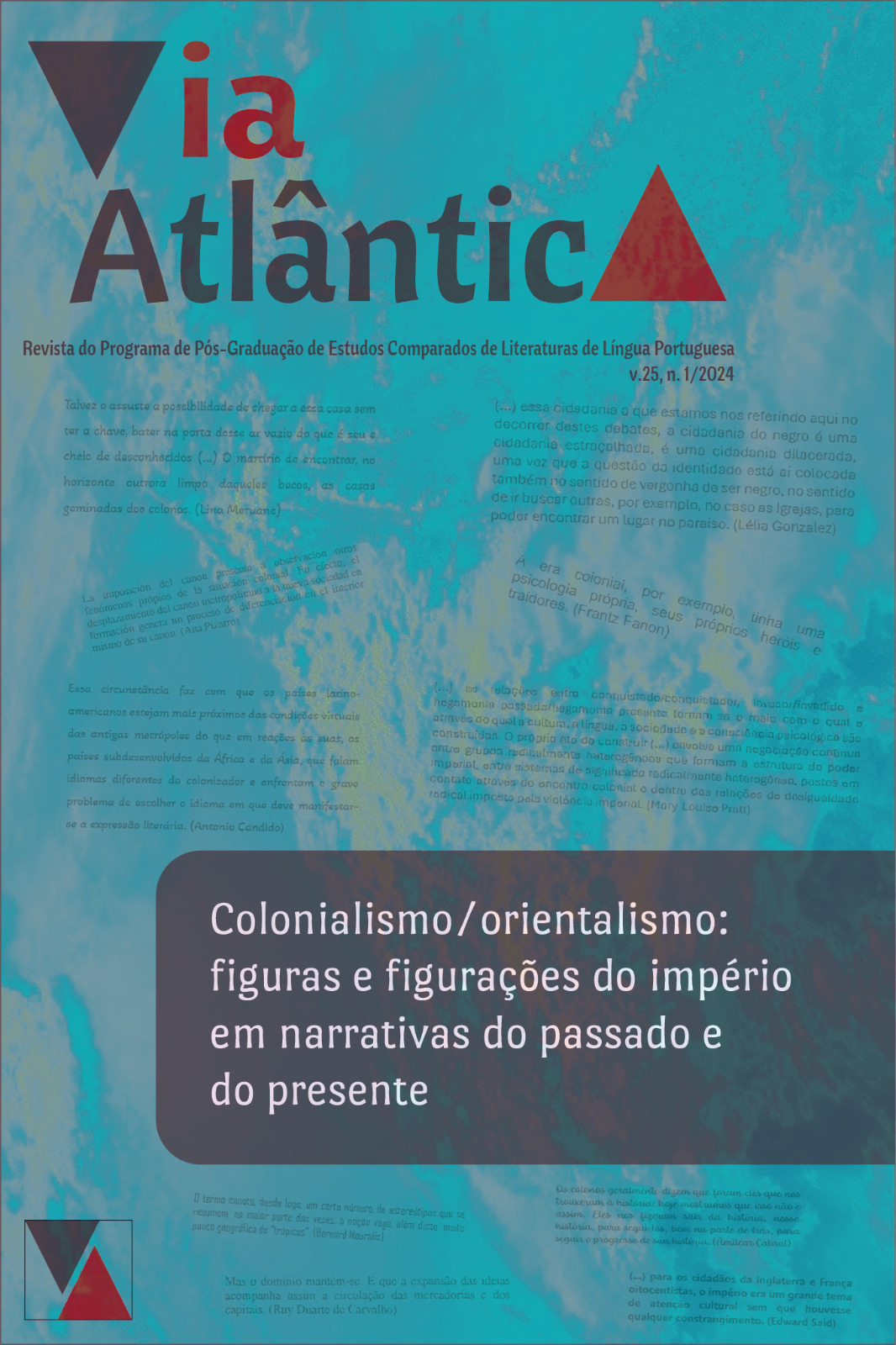Matter of recognition: Fanon and hegelian dialectics
DOI:
https://doi.org/10.11606/va.i1.199658Keywords:
recognition, colonial subject, Fanon, Hegel, black brazilian poetryAbstract
From the Programme of Activities of the “International Decade for People of African Descent”, proclaimed by the UN General Assembly (2015-2024), this paper proposes a reflection on the recognition of the colonial subject in two dimensions: a) by the denial of the Black man enacted on the poetry of Cruz e Souza and Oswaldo de Camargo; b) by the dialogue that Frantz Fanon holds with Hegel. Fanon observes that the Black man is out of the process of History because he is presented inside the closed circuit of the self-consciousness or “in-itself” and never at the critical conscience stage of a “being-for-itself” because he is not granted recognition reciprocity.
Downloads
References
ASHCROFT, Bill; GRIFFITHS, Gareth; TIFFIN, Helen. The Empire Writes Back: Theory and Practice in Post-Colonial Literatures. London: Routledge, 2004.
BERND, Zilá. Negritude e literatura na América Latina. Porto Alegre: Mercado Aberto, 1987.
BHABHA. Homi. A questão do “outro”: diferença, discriminação e o discurso do colonialismo. In: HOLLANDA, Heloisa Buarque de (org.). Pós-modernismo e política. Rio de Janeiro: Rocco, 1992. p. 178-203.
BUCK-MORSS, Susan. Hegel e Haiti. Trad. de Sebastião Nascimento. Novos Estudos Cebrap, São Paulo, n. 90, p. 131-171, jul. 2011.
CAMARGO, Oswaldo de. Luz e breu: antologia poética, 1958-2017. São Paulo: Ciclo Contínuo, 2017.
COSTA, André Oliveira; BAVARESCO, Agemir. Movimento lógico da figura hegeliana do Senhor e do Servo. Trans/Form/Ação, Marília, v. 36, n. 1, p. 37-60, 2013. DOI: 10.1590/S0101-31732013000100004.
CRUZ E SOUSA, João da. Emparedado. In: CRUZ E SOUSA. Obra completa. Rio de Janeiro: Nova Aguilar, 1995. p. 658-673.
FILIPPO, Thiara Vasconcelos de. Oswaldo de Camargo: Depoimento. literafro: portal da literatura afro-brasileira, Belo Horizonte, 9 fev. 2023. Disponível em: http://www.letras.ufmg.br/literafro/autores/360-oswaldo-de-camargo. Acesso em: 17 abr. 2021.
FANON, Frantz. Pele negra, máscaras brancas. Salvador: Edufba, 2008.
FAUSTINO, Deivison. A “interdição do reconhecimento” em Frantz Fanon: a negação colonial, a dialética hegeliana e a apropriação calibanizada dos cânones ocidentais. Revista de Filosofia Aurora, Curitiba, v. 33, n. 59, ago. 2021.
FAUSTINO, Deivison. Pele negra, máscaras brancas, revisitado: diálogos sobre a atualidade de Frantz Fanon. São Paulo: Ubu, dez. 2020. Curso on-line.
FERREIRA, Lígia Fonseca. Entrevista com Oswaldo de Camargo.Via Atlântica, São Paulo, n. 18, p. 103-120, 2010.
FIGUEREDO, Fábio Luís Rodrigues. Hegel e o momento dialético da denegação [aufhebung] revelado no escrito de Freud: “a negação”. In: SEMINÁRIO DOS ESTUDANTES DA PÓS-GRADUAÇÃO EM FILOSOFIA DA UFSCAR, 2013, São Carlos. Anais […]. São Carlos: UFSCar, 2013. CD-ROM.
GORDON, Lewis R. Gordon. Prefácio. In: FANON, Frantz. Pele negra, máscaras brancas. Salvador: Edufba, 2008.
HEGEL, George W. F. Fenomenologia do espírito.Trad. de Paulo Meneses e Karl-Heinz Efken. Petrópolis: Vozes, 2003.
KLEINBERG, Ethan. Kojève and Fanon: The Desire for Recognition and the Fact of Blackness. In: ABBEELE, Georges van den; STOVAL, Tyler (org.). French Civilization and Its Discontents: Nationalism, Colonialism, Race. Lanham: Lexinton, 2003. p. 115-128.
ORGANIZAÇÃO DAS NAÇÕES UNIDAS (ONU). Plano de ação. Década Internacional de Afrodescendentes (ONU), Nova York, 13 nov. 2017. Disponível em: https://decada-afro-onu.org/plan-action.shtml. Acesso em: 17 abr. 2023.
SAFATLE, Vladimir. Curso integral: A Fenomenologia do espírito, de Hegel. São Paulo, [s. n.], 2007. Disponível em: https://www.academia.edu/5857053/Curso_Integral__A_Fenomenologia_do_Esp%C3%ADrito_de_Hegel_2007_. Acesso: 16 jan. 2020.
UNITED NATIONS. General Assembly. Resolution adopted by the General Assembly on 18 November 2014. New York: UN, 1 dez. 2014. Disponível em: https://decada-afro-onu.org/en/events/africandescentdecade/pdf/A.RES.69.16_IDPAD.pdf. Acesso em: 17 abr. 2023.
Downloads
Published
Issue
Section
License
Copyright (c) 2024 Paulo César Andrade da Silva

This work is licensed under a Creative Commons Attribution 4.0 International License.
Authors who publish with this journal agree to the following terms:
- Authors retain copyright and grant the journal right of first publication with the work simultaneously licensed under a Creative Commons Attribution License that allows others to share the work with an acknowledgement of the work's authorship and initial publication in this journal.
- Authors are able to enter into separate, additional contractual arrangements for the non-exclusive distribution of the journal's published version of the work (e.g., post it to an institutional repository or publish it in a book), with an acknowledgement of its initial publication in this journal.
- Authors are permitted and encouraged to post their work online (e.g., in institutional repositories or on their website) prior to and during the submission process, as it can lead to productive exchanges, as well as earlier and greater citation of published work (See The Effect of Open Access).



















